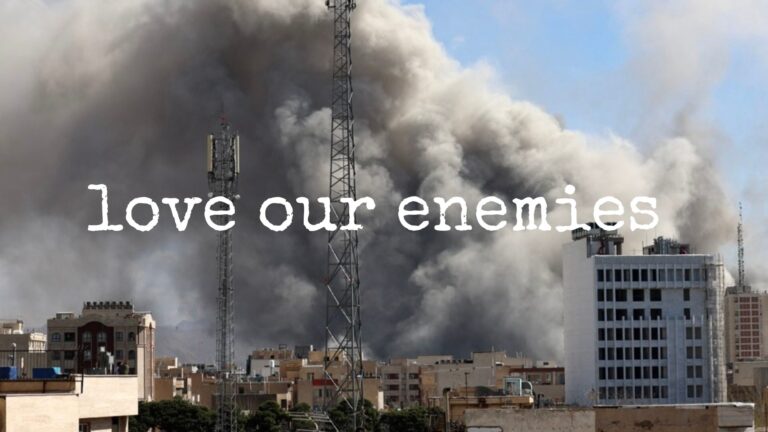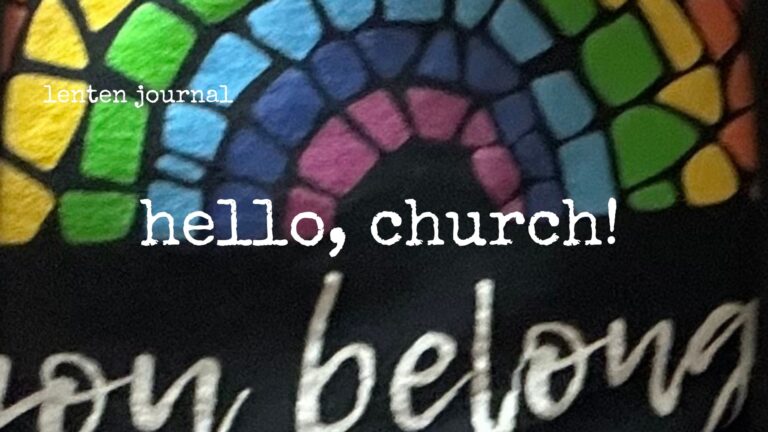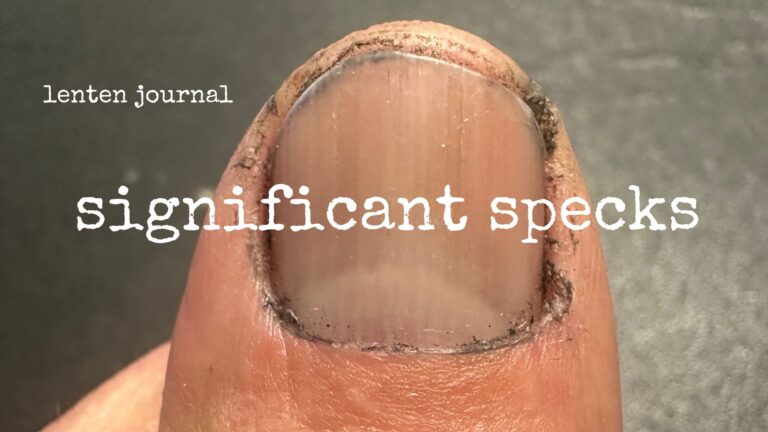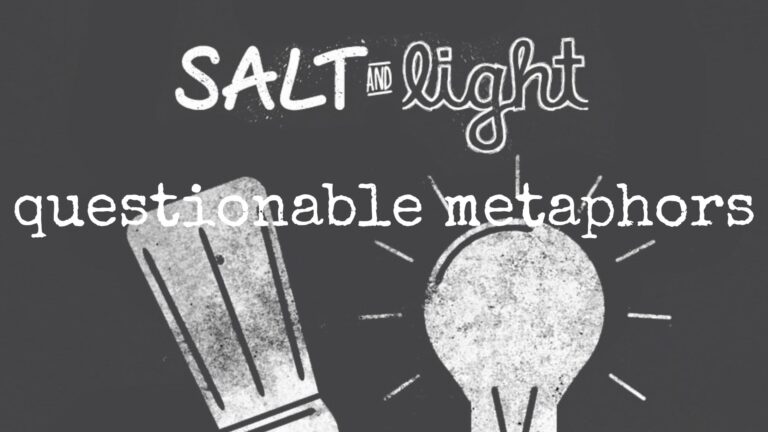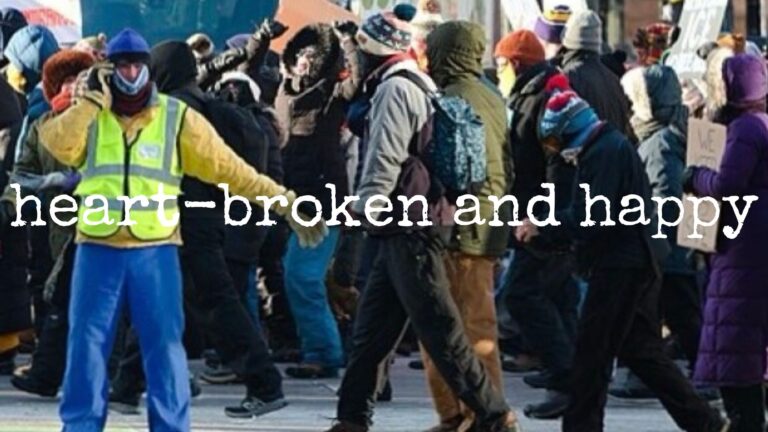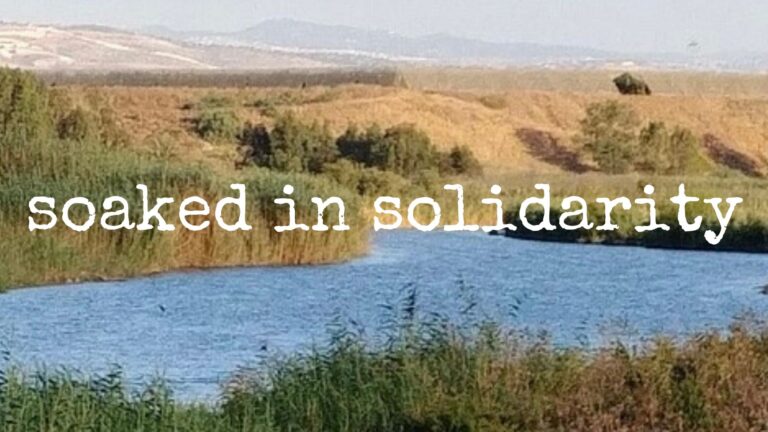I chose my passage for my sermon some weeks ago, and then found it painfully poignant when I woke to news of the US bombing of Iran and all that has set in motion. Here is my sermon from last Sunday.
_____________________________
This is one of those sermons where it’s hard to know where to start, so I’m going to start at the ending, with the last sentence of our passage this morning:
Therefore, just as God is complete in showing love to everyone, so also you must be complete.”
Where our translation uses the word complete, many have the word perfect, both of which need a little unpacking for us to really get the image Jesus was trying to convey. The Greek word that gives translators so much trouble is telos, which means end, goal, or purpose. It refers to the final objective of an action or process. Just as God’s goal or purpose is to love everyone, so also is our purpose. Jesus’ call is for us to be the people God created us to be.
Hold that thought and let’s tie it to what Jesus has said in the sermon so far. Though it has been a few weeks for us, we are only a couple of paragraphs away from Jesus saying that those who are poor, who are mourning, who are working to wage peace, and who are being persecuted for living out a life of love are blessed and happy because they are living out their purpose. Then he said we are salt and light, offering us another picture of our purpose as those who are wonderfully and uniquely created in the image of God and worthy to be loved.
Jesus actually trusted that God’s love lived out in our words and actions could change the world, which makes me wonder: Do we?
“You have heard that it was said, You are to love your neighbor and hate your enemy. But I say to you, love your enemies and pray for those who harass you and make cases against you, so that you become as children of God.”
On a Sunday just a day after our government has started a war with a nation we have deemed an enemy, we may be tempted to think Jesus’ world was a simpler one and his words would have been easier to take seriously in a place like first century Palestine. Let us remember that Jesus spoke those words to people living under a brutal Roman occupation. The Roman law said a soldier could literally take the shirt off your back or force you to carry their pack, not to mention inflict violence with impunity. By the time Matthew and the other writers had penned their gospels, the Romans had leveled the Jewish Temple and were persecuting Jews and Christians.
Jesus called them—and us—not to be defined by our circumstances but to be defined by our purpose, our calling as God’s beloved: Love your enemies.
Who, then, are our enemies?
The first thing that pops into my mind when I think about that question is the way our pup Loretta responds to the mail carrier. Every day, as soon as she hears them step up on our porch and open the lid to the mailbox, she goes into a frenzy, barking and running around as if to say, “Don’t you understand the threat we are under? They’re right there on the porch doing something!” And she’s ready for attack. She wants to fight back.
Such is the logic of fear—and it takes fear to create an enemy.
To see someone else as an enemy also means to see them as a label rather than as people like us. Our enemies are Democrats, Republicans, liberals, fundamentalists, Muslims, immigrants, Yankee fans, family members, anyone we disagree with—the list could go on and on. The labels allow us to see others as them rather than us. We see differences rather than similarities. We also reduce ourselves to a label as well.
The eyes of love offer us a view of all that connects us.
When I think about the service members called into action over the past days, I think about my father-in-law who enlisted because he came from a poor family and military service gave him a way out of poverty. I think about the students I taught at Charlestown High School in Boston, most of them first generation immigrants, who joined the service for the same reasons. When I think about the bombs that fell yesterday, I think about the parents whose daughters were killed in the school that was destroyed. Everyone one who died yesterday was loved by someone.
If our purpose, our reason for being, is to love one another, how can we do that if we reduce each other to a label? How can we be peacemakers if we respond to violence with violence, whether big or small?
Jesus’ answer to both of those questions is we can’t. If we are going to be the people God created us to be we have to respond to violence with love. We have to love our enemies. So what does that look like? The apostle Paul wrote:
Love is patient, love is kind, it isn’t jealous, it doesn’t brag, it isn’t arrogant, it isn’t rude, it doesn’t seek its own advantage, it isn’t irritable, it doesn’t keep a record of complaints, it isn’t happy with injustice, but it is happy with the truth. Love puts up with all things, trusts in all things, hopes for all things, endures all things. Love never fails.
Let’s go back to where we started this morning with Jesus’ invitation to live into our purpose as God’s beloved. From that perspective, Jesus’ call to love our enemies is less of a command—something we should do—and more of a promise that living into our purpose will open our hearts and lives to more than we can imagine. God sees more in us that we see in ourselves. God sees us as those who can help to create a different kind of world where violence doesn’t always breed more violence. God sees us as people capable of love, of seeing one another as more than the sum of our differences or our faults or our labels.
It’s not an invitation that offers us a way of living that fits in a sound bite or is easily summarized. It is an invitation to the hard work of living intentionally. Even loving someone we really care about requires effort and purpose. To love someone with whom we fundamentally disagree means doing the hard work of seeing each other as more than our disagreements. As we have already said, it takes fear to create an enemy. Love creates relationships. To love someone we don’t understand means doing the work of listening and learning about them. To decide to choose to do the hard work of love means to trust another thing that the apostle Paul wrote:
Who will separate us from Christ’s love? Will we be separated by trouble, or distress, or harassment, or famine, or nakedness, or danger, or sword? As it is written,
We are being put to death all day long for your sake.
We are treated like sheep for slaughter.
But in all these things we win a sweeping victory through the one who loved us. I’m convinced that nothing can separate us from God’s love in Christ Jesus: not death or life, not angels or rulers, not present things or future things, not powers or height or depth, or any other thing that is created.
Strength will eventually fail. Power is not sustainable. Fear destroys us all. In the face of everything, we know that God is with us, and God is love. Love is the only thing that transforms, heals, and creates new life. And we are called to love our enemies, to choose not to respond to violence with violence, to pray for those who would do us harm, to live and act and speak as those who trust that God’s love never lets us go. Amen.
